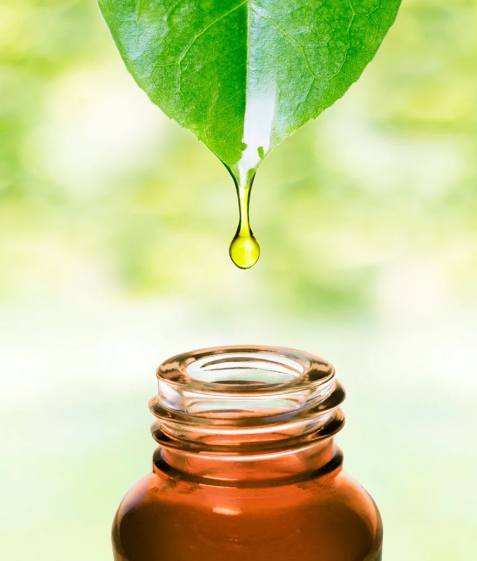The fight against aging is a complex process, with factors like inflammation, oxidation, and DNA damage playing key roles. As we age, these mechanisms can affect our skin and overall health, but plant-based ingredients rich in antioxidants and phytochemicals may help combat these challenges and promote healthier, longer lives.
Skin Aging and the Power of Plant-Based Diets
Research has shown that plant-based diets—rich in fruits, vegetables, legumes, and grains—can improve skin health by addressing aging factors like DNA integrity, inflammation, and oxidation. A 2020 review by dermatologists at U.S.-based medical centers highlighted that plant-based diets support telomere length, which plays a crucial role in cellular longevity. Telomeres, the protective caps at the ends of chromosomes, shorten as we age, and the telomerase enzymes that rebuild them are influenced by diet and lifestyle. Plant-based eating is linked to longer telomeres, which may help slow the aging process at the cellular level.
In addition to promoting healthy skin, plant-based diets have been shown to reduce systemic inflammation and improve blood vessel health, both of which are crucial for maintaining youthful skin. Chronic inflammation accelerates skin aging, leading to increased wrinkles, dryness, and reduced elasticity. Environmental factors like UV exposure, smoking, and pollution further exacerbate this process.
Advanced glycation end-products (AGEs) are one of the main culprits behind skin aging. These harmful compounds form when sugars like glucose bind to proteins or lipids in the body, disrupting collagen and elastin—key proteins that keep skin firm and elastic. Diets high in processed foods and meats are associated with higher AGE levels, while plant-based diets are linked to lower levels of these harmful compounds.
Oxidation, caused by reactive oxygen species (ROS), is another major factor in skin aging. Antioxidants help neutralize ROS and protect the skin from oxidative damage. While the body produces its own antioxidants, additional antioxidants from plant-based foods can provide extra support. Studies have shown that plant foods, particularly herbs and spices, contain significantly more antioxidants than animal products, making them an ideal choice for promoting skin health.
Antioxidant-Rich Plants for Healthy Aging
Plants are packed with antioxidants that help prevent oxidative damage. Herbs and traditional plant medicines are particularly rich in these compounds. For instance, Sangre de Grado, a sap from the Croton lechleri tree native to Peru, has high levels of antioxidants like proanthocyanidins. In Ayurveda, triphala—made from three medicinal fruits—also boasts impressive antioxidant content. Similarly, traditional Chinese medicine (TCM) includes botanicals like Arjuna and the herb Goshuyu-tou, which are known for their antioxidant properties.
Other plant-based foods that are rich in antioxidants include berries, nuts, seeds, and certain beverages like tea and coffee. These foods are packed with flavonoids, polyphenols, and other antioxidants that contribute to healthy aging and improved skin appearance.
Supplements for Healthy Skin
As demand for plant-based beauty grows, many supplement companies have developed products incorporating these antioxidant-rich plants to promote healthy aging. Research supports the effectiveness of combining various plant extracts, vitamins, and essential fatty acids to improve skin health. Some studies suggest that plant-based supplements can activate telomerase activity and help sustain telomere length, which may slow the aging process.
A notable example comes from a study on the TCM herb astragalus (Astragalus membranaceus). Participants who took an astragalus extract (TA-65) for a year had longer telomeres compared to those who took a placebo. This suggests that certain plant-based supplements may have the potential to support cellular longevity.
Other TCM herbs, such as Sichuan pepper (Zanthoxylum bungeanum), have been shown to target photoaging and wrinkles. The active compound, hydroxy-alpha-sanshool, helps protect skin cells from UVB damage, reduces inflammation, and stimulates autophagy—the process that helps clean up damaged cells. In studies, the pericarp extract of Sichuan pepper was found to improve skin elasticity and reduce the appearance of crow’s feet.
Cherry blossom extract from Japan’s Prunus lannesiana, known for its beautiful flowers, also has skin benefits. This extract is rich in flavonol glucosides, which can help reduce AGE formation and protect skin from oxidative damage. Studies have shown that cherry blossom extract has anti-inflammatory effects and can reduce skin redness, making it a promising ingredient for soothing inflamed skin.
Conclusion
Plant-based ingredients are taking the beauty and skincare world by storm, offering a natural way to combat the effects of aging. From antioxidants to phytochemicals, botanicals have the potential to improve skin health by addressing the root causes of aging, such as inflammation and oxidation. As research continues, it’s clear that plants have a powerful role to play in the healthy aging space, both in diet and in skincare products.

Leave a Comment